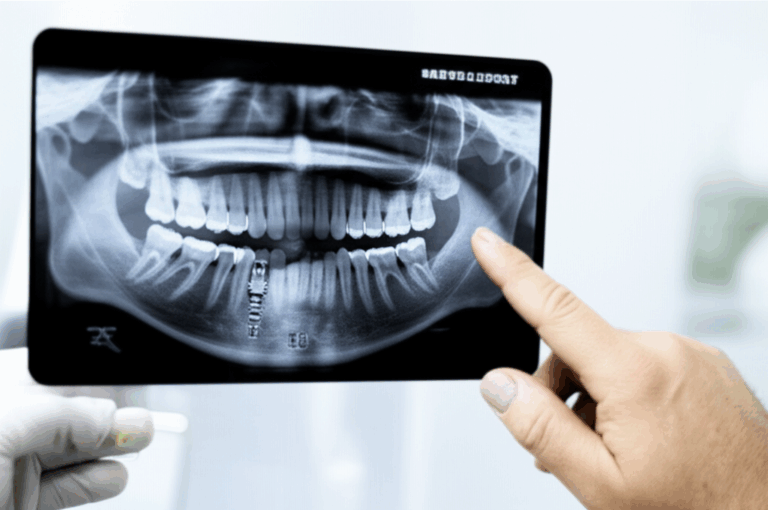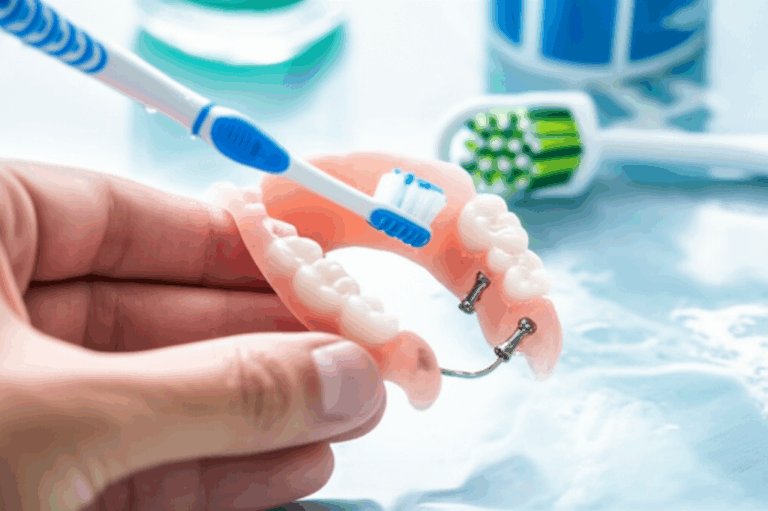
Does Insurance Cover Full Mouth Dental Implants? Understanding Your Coverage Options
Thinking about getting full mouth dental implants but worried about the cost? You’re not alone. In this article, I’ll walk you through whether insurance will help pay for this big dental step, what affects your out-of-pocket costs, and how to make implants more affordable. You’ll see why it’s worth planning ahead and the real-life options for a healthy, confident smile. If you’ve ever wondered, “Does insurance cover full mouth dental implants?”—keep reading.
Table of Contents
What Are Full Mouth Dental Implants?
You might have heard your dentist talk about “full mouth dental implants.” But what does that mean? Full mouth implants are a way to put in new teeth for the whole top row, bottom row, or both. Instead of using dentures you can take out, your dentist puts a few strong screws—usually made from titanium or zirconia—into your jawbone, and those hold everything in place. Next, they attach a whole new set of teeth (sometimes called a fixed bridge or hybrid dentures) on top.
People often think about full mouth implants when they are missing a lot of teeth or their teeth are very broken. The difference between implants and regular dentures? Implants don’t move or make clicking sounds because they’re stuck in place. You can talk, eat, and smile without worry.
Why Do People Want Full Mouth Implants?
Let’s be honest: missing teeth makes life tough. Eating, talking, or even just smiling feels harder. Full mouth implants can turn that around. I’ve seen people go from hiding their mouth to grinning from ear to ear fast. Implants:
- Feel like your own teeth.
- Let you eat the foods you like (crunchy apples, chewy bread).
- Keep your jawbone strong (dentures can’t do that).
- Don’t need sticky glue.
- Last for a long time if you look after them.
And yes, implants help stop bone loss in your jaw. Most people don’t know this until it happens: lose teeth, your jawbone gets smaller. Implants help keep the bone strong.
Problem? Implants cost more than other tooth replacements. That’s where the insurance questions start.
Does Dental Insurance Cover Full Mouth Implants?
This is the main thing—does insurance help pay? Here’s the honest answer: It depends.
Most basic dental insurance doesn’t like to pay for full mouth implants. Here’s why: they like to pay for check-ups, cleanings, and small things, but with big treatments like implants…they often don’t pay much. Usually, insurance:
- Pays only some of big dental work, maybe 50%—if you’re lucky
- Has a yearly cap, like $1,500—once you spend that, you pay the rest
- Might cover pulling out teeth but hardly ever pays for all of the implant process
- Says “no” to “cosmetic” stuff—implants are often called this
Even so, there might be some parts your insurance helps with. Implant crowns, abutments, or maybe a bit of the surgery might get some coverage, especially with a PPO plan. If you have an HMO, your choices might be smaller.
What Do Dental Plans Actually Pay For?
Let’s break it down. Dental plans almost always have a list of what they’ll pay for—and what they will not. Here’s what usually happens with implants:
1. Extractions: Most plans pay for pulling teeth.
2. Bone Grafting & Sinus Lift: Sometimes paid for if your dentist says it’s really needed for your health, but often not.
3. Implant Surgery (the metal or ceramic post): Most of the time not paid for, or only a small bit.
4. Abutment/Crown or Denture (the part you chew with and see): More likely to be paid for. Some plans call this a “major treatment” (like crowns or bridges).
How much do plans pay? Usually, they’ll pay half of major work (50%) after you pay your deductible. But they have a low yearly max—often just $1,500.
And remember—there’s almost always a waiting time. If you just got dental insurance, you may need to wait 6 to 24 months before you can use it for implants.
Quick Table: Typical Dental Insurance Numbers
| Dental Insurance Feature | Typical Details |
|---|---|
| Pays for big procedures? | About 50% |
| Pays for implant post? | 0–15% or none |
| Yearly max benefit | $1,000–$2,500 |
| Deductible before insurance pays | $50–$150 |
| Waiting time for implants | 12–24 months |
Source: National Association of Dental Plans
It’s easy to hit your limit fast. If one implant can cost $3,000–$6,000, you see how quick $1,500 goes.
When Might Medical Insurance Step In?
You might not know this, but your regular health insurance could maybe pay for part of the implants. But this is not common. Here’s when it could happen:
1. Accident or Injury: If you lost teeth in a car wreck, bike crash, or sports, medical insurance may help fix things.
2. Tumor or Illness: Some folks need implants after cancer, tumors, or health problems. Medical insurance may pay to fix what was lost.
3. Birth Problems: If someone was born without some teeth (a birth issue) or can’t eat right without new teeth, insurance could help.
Your doctor and dentist have to show why it’s really needed for your health—not just for looks. Your dentist sends in paperwork, the insurance people look it over, then you wait and hope for a “yes.” Don’t get too hopeful, though. Less than 10% of full mouth implant cases get any health insurance help.
Tip: Start with a pre-approval. This is when your insurance tells you before you start what they’ll pay for.
How Much Do Full Mouth Implants Cost?
Let’s be honest about the prices. Dental implants cost a lot. For most people, this feels scary. So, what’s it cost?
- All-on-4 or All-on-6 fixed systems: $40,000 to $70,000 for the top or bottom row
- Implant-supported dentures you can take out: $20,000 to $40,000 per top or bottom row
- Single tooth implant: $3,000 to $6,000 for one tooth
Why so high? Implants are way more than just screws and fake teeth. You might need things like:
- Extractions (pulling bad teeth)
- Bone grafting (adding bone so implants hold)
- Sinus lift (if you don’t have enough bone up top)
- Good crowns or dentures (porcelain, zirconia, titanium)
Where you live and your dentist’s skill matter too. Big cities and really good dentists may charge more than small towns or china dental lab pricing. With so many things to think about, there’s no one price for everyone.
Sample Table: Why Costs Change
| Cost Factor | Example |
|---|---|
| Number of Implants | 4 per row (All-on-4) or 6 per row |
| Type of Teeth Set | Fixed bridge or overdenture |
| Materials Used | Porcelain, zirconia, titanium |
| Steps Needed | Extractions, bone grafts, etc. |
| Dental Office Location | City vs. country |
| Dentist’s Experience | Specialist vs. regular dentist |
Now, you see why the answer is, “it depends.”
Ways to Save on Full Mouth Implants
So, what can you do if insurance won’t pay for everything (and it almost never does)? Let’s look at real ideas to help you save money on implants.
1. Make the Most of Your Insurance
- Spread out your treatment over two or three years to use your yearly max more than once.
- If your claim gets denied, send extra paperwork from your dentist. Sometimes, fighting a little works.
- Some parts of your treatment might be covered (like crowns or surgery). Ask your dentist’s office for a clear bill.
2. Try Other Payment or Help
- Use dental loans like CareCredit or LendingClub to pay slowly over months or years.
- Some dental offices let you pay in steps with no or low interest.
- Use your health savings account (HSA) or flexible spending account (FSA)—these use money before taxes.
- Think about a low-interest loan or a credit card (but watch out for high interest).
3. Look for Cheaper Treatment Choices
- Many dental schools give lower-cost care (the students are watched by teachers).
- Some people travel for dental care; this can cost less, but always check if the clinic is trustworthy and safe first.
- Sometimes, grants or groups help with much-needed dental work—search online for local options.
- Discount dental plans are not insurance, but they can help you get lower prices with certain dentists.
What Steps Should You Take Next?
If you want to look into full mouth dental implants, here are steps to follow:
Step 1: Meet with a Specialist
Find a local dentist who works with an implant dental laboratory. This could be a prosthodontist, oral surgeon, or a great general dentist. At your first meeting, you’ll talk about your health, what you need, and which implant type fits you best. Get a written plan with all costs listed.
Step 2: Check Your Insurance and Benefits
Call your dental and health insurance company. Ask about:
- What is covered—and what is not
- Yearly maxes, waiting times, deductibles
- If you need pre-approval (very important for big work!)
Check your written Explanation of Benefits (EOB) for implant codes; don’t just trust a phone call.
Step 3: Look at All Payment and Savings Options
Add up what your insurance pays, your own money, and any loans. Can you do treatment in steps? Will an HSA help you pay less in taxes? A little planning now can stop a lot of trouble later.
Step 4: Make Your Final Choice
Think about the cost, long-term benefits, and if you trust your dentist. Implants are a big step—but they can really change your mouth’s health for the better.
Are Implants Worth the Investment?
So, is getting full mouth dental implants a good idea? For lots of people, the answer is a big yes. Here’s why:
- Implants are strong, and if you keep them clean, they can last for decades.
- They help you eat, talk, and smile like you used to—or even better!
- They stop your jawbone from getting smaller, which keeps your face shape.
- They work well most of the time (95%+ for single implants, 90–95% for a whole row).
Yes, they cost a lot at first—but you’re putting money into your health and happiness for years ahead.
Frequently Asked Questions
Q: Why doesn’t my insurance pay for the whole implant?
A: Most dental insurance plans have low yearly limits and call implants “cosmetic” or “not needed for health.” They were made for small jobs, not big fixes.
Q: How can I get implants paid for as something I need for my health?
A: You’ll need your dentist to write down proof of injury, illness, or a big health need. Always start with pre-approval. Work with your dentist and insurance.
Q: Are there safer, cheaper ways to get implants?
A: Yes! Try working with a china dental lab for lower costs, or check out dental schools. Always look at the dentist’s reviews.
Q: What if I need bone grafting or a sinus lift first?
A: Sometimes insurance helps if your dentist says you need it for health, but you’ll probably pay most yourself. How much it costs depends.
Q: How long do full mouth implants last?
A: Implants might last 15–25 years or more if you take care of them. The teeth on top might need fixing every 10 years or so.
Key Points To Remember
- Full mouth dental implants are a real, lasting fix for missing teeth—but they’re expensive.
- Most dental insurance only pays for a part of the process. Don’t expect them to cover everything.
- Medical insurance only helps in rare cases, usually for injury, illness, or birth problems.
- Use insurance smart: combine benefits, fight denied claims, and ask your dentist for a clear bill.
- Check out CareCredit, FSAs, HSAs, dental schools, and trusted digital dental labs for ways to save.
- Pick your dentist wisely, and always get a written plan and cost estimate.
- With good planning, full mouth implants can be doable and can change your life.
Remember: Your smile matters. If you plan ahead, ask questions, and use all your options, you can enjoy a healthy, beautiful smile for a long time.








